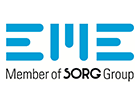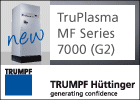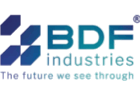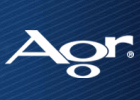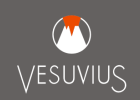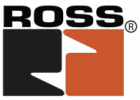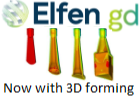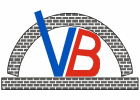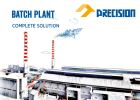Zippe’s new chief technology officer believes the future of the batch plant specialist lies in sustainable manufacturing technology. Here Dr-Ing Andreas Emrich outlines how this technology will drive the company forward.
Andreas Emrich is an industrial expert. While he may be a newcomer to the glass industry he has spent the majority of his career working in a variety of industry sectors. He aims to bring this experience and know-how from other sectors to Zippe to help continue the company’s growth. “Zippe has a large tradition with lots of experienced, skilled employees. But on the other hand, most have not experienced anything other than Zippe or the glass industry. So it could be an advantage to have someone with no experience of the glass industry to bring other experience, new ideas and impulses to the business,” he states.
Career
Dr Emrich has spent a substantial part of his career in diferent functions at Bosch Rexroth, first at its site in Lohr am Main, and then in Witten, both in Germany. He then had a spell at Weiss GmbH as a Vice President involved in its global operations. His previous experience dealing with topics such as assembly, logistics worldwide, purchasing, supply chain or lean management means he is in a good position for the job at Zippe. Since starting the role of Chief technology Officer at Zippe on July 1 last year, Dr Emrich has spent the past 12 months rapidly getting up to speed on the main industry topics and talking points, from digital glassmaking to sustainability. He has visited different Zippe customers in glass facilities around the globe and gained an understanding of the specifics of the glass manufacturing sector. He recognises the sector has become more concentrated in recent years, which provides opportunities for Zippe. For companies with facilities globally it is often difficult to find a global standard for each site. It takes time for global companies to change. Zippe, with its flexibility, speed and agility, is in a position to help if required. “Here at Zippe we can decide in hours. We have the advantage that we are agile, flexible and fast.”
Communication
He sees his new role as comprising of two components: the internal and external. Internally he sees his role to optimise and accelerate process within Zippe and to change the mindset in some issues. For example, after the acquisition of Lahti by Zippe in 2018, the integration of the companies was delayed by the Covid-19 pandemic and the various travel restrictions and reduced personal contact. Dr Emrich took advantage of the easing of restrictions to spend some time with his colleagues from Lahti in Finland in order to help accelerate the integration process. A successful PMI of decades-long competitors is hard work and not self-running. He has also spent time listening to Zippe’s own staff to discover its strengths and work out areas for improvement. “The employees here were open from the beginning and gave me the big picture about what works well and other things that have potential. It was important for me to get an overall picture. It is important for me to hear these opinions because we can only offer good solutions if we work together. I regard myself as a team player and it is important to integrate all the different groups.”
Decarbonisation
Externally, he sees the main priority as decarbonisation, efficiency and the changing face of the glass sector as it faces up to the challenge of climate change and a more sustainable world. While he agrees it will be tough for many industrial companies to have to adapt to a world of renewable energy and reduced emissions, he believes Zippe is already far ahead in this respect. “The glass industry is already started to change with its commitment to sustainability. But when you look at the discussions about climate, CO2 reduction, renewable energy and sustainability, I think we will see many more changes in the future. “It will be tough for many industrial companies but it also offers opportunities and is a good circumstance to change.” He has already had a similar experience when he was at Bosch. He was part of a team tasked with helping increase its energy-efficiency and reduce its global CO2 footprint in its production sites at 20 facilities around the globe. The company trialled and installed a variety of solutions at the various sites. While the company experienced pain in the short term in terms of terms of internal acceptance and willingness to change because of the transition, but in the long term it improved the company’s reputation and boosted its Environmental, Social and Governance (ESG) commitments. Within the glass industry he anticipates the use of oxy-fuel and electricity in furnaces to increase. To meet this anticipated increase in demand Zippe is working on a oxy-fuel optimised batch preheater (BPH) and, together with one of the big global players in flat-glass on the first BPH for float.
Digital glassmaking
Similarly, he sees the rise in Industry 4.0, digital technology and components such as Virtual Reality and AI and being fundamentally important to the glass industry. While the subject of maintenance may not be top of everyone’s lists, Dr Emrich believes the rise of digital technology can have sweeping changes in this regard. The integration of VR means equipment can be installed and systems updated over the internet, rather than a member of staff undertaking a physical journey to a glass plant. “Here at Zippe we are working on solutions which meets all the specific requirements of our customers. For example, we can use our system in Wertheim to look on the systems of our customer and provide the necessary update.” He adds: “Predictive maintenance based on knowing what will happen from my experience it is not such a problem for the customer but unexpected downtime and maintenance is a problem - and nobody likes that! “If our customers know in advance when they have to do something, then the situation does not come as a surprise and is easier to handle. “If we can support our customers in this regard, for example if we can check and control the drives or machines and can give them information about a change in behaviour, then a customer can prepare.”
In-house knowledge
Despite only being in the glass industry a short time, he believes he can bring fresh ideas from his time outside the sector. “In my experience in other sectors, we will implement good solutions and experiences from other industries which I believe can work here at Zippe and throughout the glass industry.” Dr Emrich is impressed by Zippe’s global customer base as well as the amount of in-house knowledge the company has in specialist subjects. He has already witnessed Zippe’s strengths. “For example, Zippe has experience of materials globally. Its customers are around the world, but not all of them use the same sand for example. So there are very large differences depending on the region and Zippe has experience of handling all these different materials around the world. From my point of view this is a huge advantage compared to competitors.” Another advantage is it can source a large share of mechanical equipment from its own site. The mechanical department is next to the electrical department, each with more than 40 staff. “We have all these departments close by so can offer good solution with a combination of all these technologies and you can’t drive anything better or faster than your own company,” he states. Dr Emrich will raise his profile in the glass industry even further over the next few months: he spoke at the ICG conference in Berlin in July, and will be at glasstec in Dusseldorf. This will give him the opportunity to integrate himself even further into the industry and discover further customer needs. “It is good to hear the needs directly from the customer and to discover what they expect from Zippe. We always aim to be better and to provide smart solutions. We want the customer to say that working with Zippe brings them added value and best life cycle costs.”



